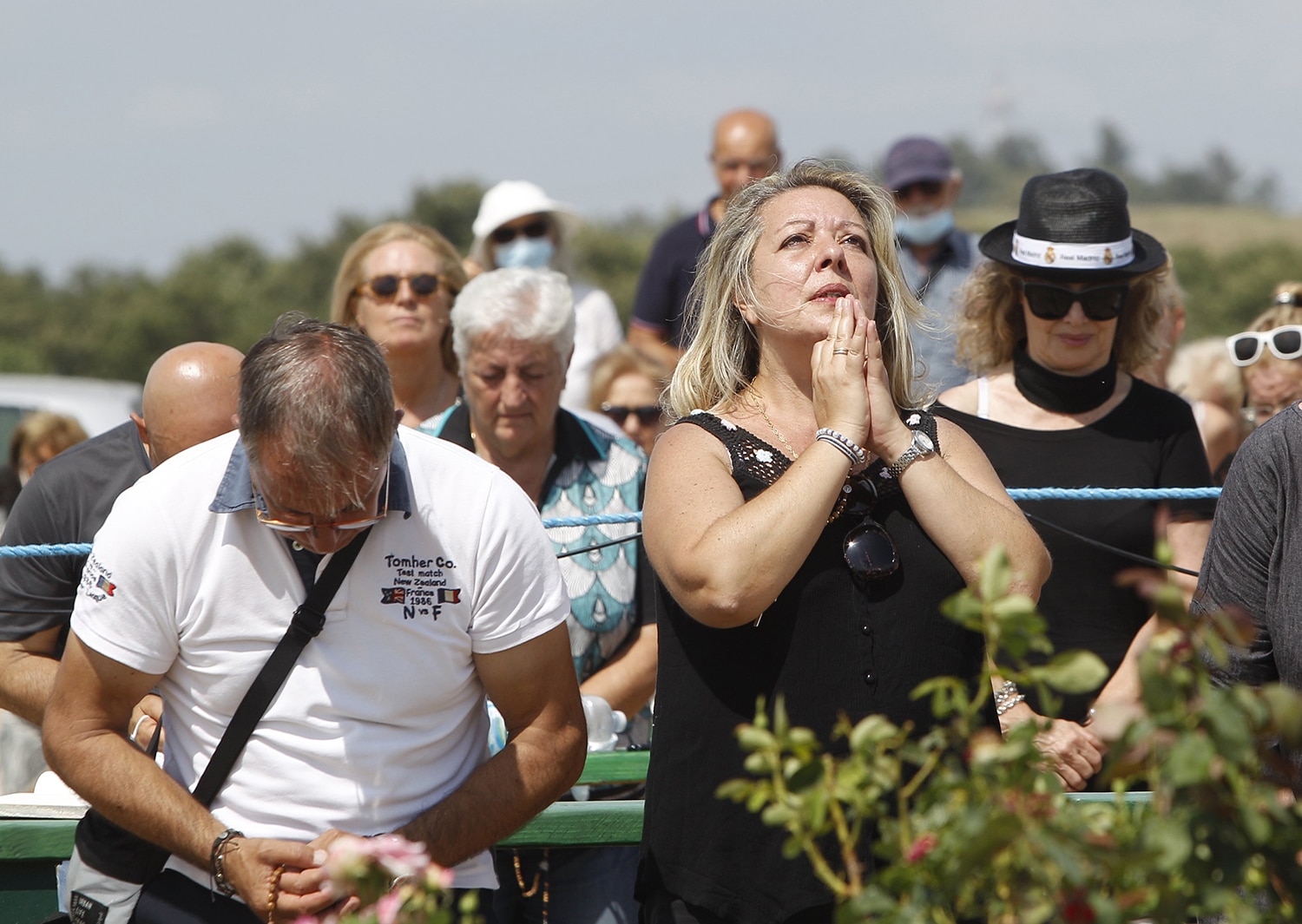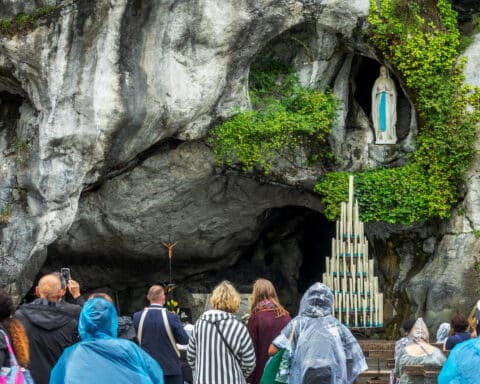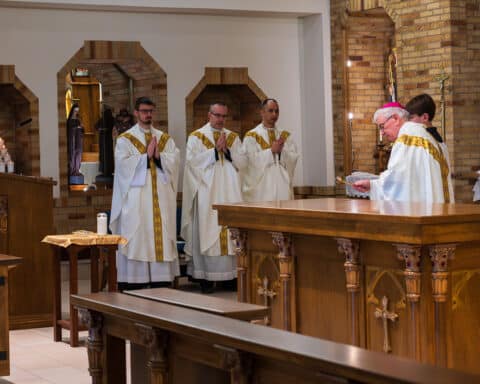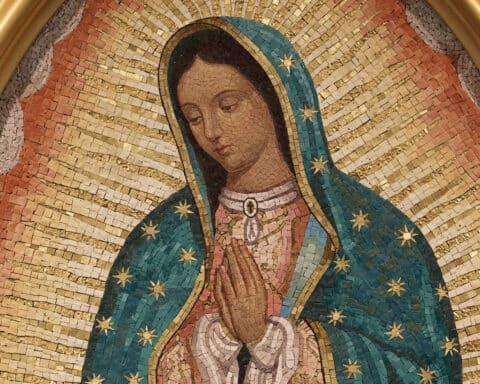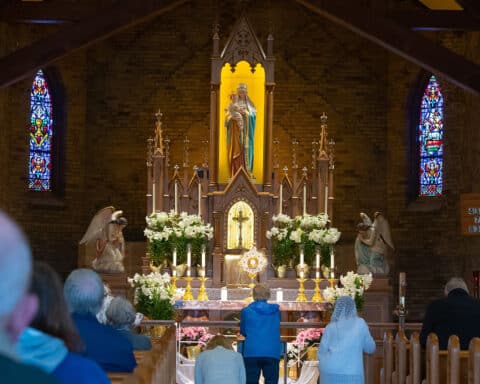VATICAN CITY (CNS) — The Marian apparitions claimed to have taken place outside of Rome were decreed “not supernatural” by the local bishop.
Since 2016, Gisella Cardia has claimed to be seeing visions of the Virgin Mary in the central Italian town of Trevignano Romano, some 30 miles north of Rome, after bringing a statue of Mary with her from a trip to Medjugorje, Bosnia-Herzegovina, which she said began to shed tears.
Cardia said that Mary and Jesus regularly communicated with her, and the alleged visions began drawing hundreds of people to monthly prayer gatherings during which she shared the content of the messages she said she received. In 2020, she told Catholic News Service that Mary had warned her of the COVID-19 pandemic by telling her in September 2019 about “a virus that would arrive from China.”
Bishop Marco Salvi of Civita Castellana, the diocese that includes Trevignano Romano, said that he had established a commission of experts in theology, canon law and psychology in April 2023 to investigate the claims. And on March 6, the diocese published its results, decreeing a “constat de non supernaturalitate,” or a refutation of any supernatural origin for the claimed apparitions.
‘Bizarre’ messages, says bishop
The bishop’s decree cited “gaps” and “contradictions” in Cardia’s interview with the commission and an “excessive simplicity” in the messages she shared with her followers. It also claimed said there were “numerous theological errors” in the messages Cardia claimed to receive from God, such as God telling her that at a certain hour people must go to the hill where Cardia’s group gathered to pray in order to be made invisible by angels and saved from danger.
The idea that salvation “requires going to a specific place and to be made invisible by angels” is not only “bizarre” but goes against the Catholic Church’s doctrine on salvation, the decree said.
The bishop also noted criticisms of the Church present in Cardia’s messages “on the basis of her personal doctrinal vision.” He wrote that the fruits of the Holy Spirit, “peace, harmony and a sense of belonging to the Church,” were not present among those who participated in Cardia’s prayer meetings and that many of them were critical of the Church for a variety of personal reasons.
In the decree, Bishop Salvi ruled that priests are forbidden to celebrate the sacraments or lead acts of popular piety in direct or indirect connection with the “events at Trevignano Romano,” as they were defined, or to visit the alleged apparition site so as not to give the impression of “ecclesial recognition.”
He also clarified that the title “Madonna di Trevignano” (“Our Lady of Trevignano”) has “no ecclesial value and cannot be used as if it did, even in a civil context.”

